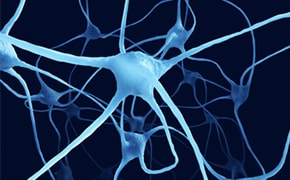Cell Signaling

Cell signaling refers mechanism of communication between cells within organisms driven by mechanical signals, such as touch, or chemical signals, such as hormones, growth factors, and neurotransmitters. In signaling pathways, stimuli are transmitted via a cascade process to yield the correct and appropriate response. Examples of cell signaling pathways include lipid signaling, insulin signaling, stress signaling, growth signaling, TOR signaling, and checkpoint signaling. Research in this field frequently covers studying and modeling cellular dynamics, analyzing cell signaling heterogeneity, crossover between cell signaling and other biological processes, and systematic studies of signaling dynamics.
Featured Categories
Explore 4,000+ potent probes to fine-tune target activity across diverse pathways and major classes. Get expert-designed bioactive small molecules for precise modulation.
Structural Genomics Consortium (SGC) chemical probes for target validation and numerous additional research applications and workflow needs.
Related Articles
- Explore key targets of cancer research and cell signaling research with the DNA damage response (DDR) pathway and do a deep dive into ATM, ATR, and p53 mechanisms involved in DNA damage checkpoints.
- Lipopolysaccharide (LPS) is the major component of the outer membrane of Gram-negative bacteria. Lipopolysaccharide is localized in the outer layer of the membrane and is, in noncapsulated strains, exposed on the cell surface.
- Acetylcholine is synthesized from acetyl coenzyme A and choline by the enzyme choline acetyltransferase. In addition to its synthesis in the liver, choline employed in acetylcholine production is derived from dietary sources.
- Collagenase Guide.Collagenases, enzymes that break down the native collagen that holds animal tissues together, are made by a variety of microorganisms and by many different animal cells.
- There are five identified glycosaminoglycan chains (see Figure 1): Hyaluronan is not sulfated, but the other glycosaminoglycan chains contain sulfate substituents at various positions of the chain.
- See All (123)
Related Protocols
- Assay Procedure for Protease
- Assay Procedure for Cholesterol Oxidase
- The Protease Fluorescent Detection Kit provides ready-to-use reagents for detecting the presence of protease activity. This simple assay to detect protease activity uses casein labeled with fluorescein isothiocyanate (FITC) as the substrate.
- See All (10)
Visit our document search for data sheets, certificates and technical documentation.
Find More Articles and Protocols
How Can We Help
In case of any questions, please submit a customer support request
or talk to our customer service team:
Email custserv@sial.com
or call +1 (800) 244-1173
Additional Support
- Chromatogram Search
Use the Chromatogram Search to identify unknown compounds in your sample.
- Calculators & Apps
Web Toolbox - science research tools and resources for analytical chemistry, life science, chemical synthesis and materials science.
- Customer Support Request
Customer support including help with orders, products, accounts, and website technical issues.
- FAQ
Explore our Frequently Asked Questions for answers to commonly asked questions about our products and services.
To continue reading please sign in or create an account.
Don't Have An Account?

